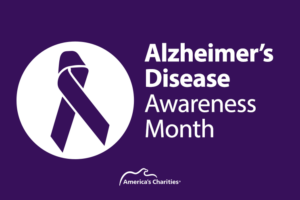Sarah Ford | February 18, 2014
The Effectiveness of Breast Cancer Screening
Source: LIVESTRONG
By Dr. Brandon Hayes-Lattin, MD
 The role of screening mammograms is in the news once again, with the publication of a new Canadian study that reported the 25-year follow-up of nearly 90,000 women aged 40-59, half of whom were randomly assigned to receive yearly mammograms for 5 years.
The role of screening mammograms is in the news once again, with the publication of a new Canadian study that reported the 25-year follow-up of nearly 90,000 women aged 40-59, half of whom were randomly assigned to receive yearly mammograms for 5 years.
The investigators concluded that, “Annual mammography in women aged 40-59 does not reduce mortality from breast cancer beyond that of physical examination or usual care when adjuvant therapy for breast cancer is freely available.” Furthermore, “Overall, 22% (106/484) of screen detected invasive breast cancers were over-diagnosed.”
Every study has strengths and limitations, as does this latest, and expect to see and hear controversy as these are debated in the media. But, when all of these studies are considered together, what do we know?
1. Breast cancer is a potentially deadly disease.
– In this study of 89,835 women followed for 25 years, 9477 (10.6%) died of all causes. Breast cancer was the cause of death in 1005 women (1.1%)
2. Women have longer survivals if they are diagnosed with smaller breast cancer tumors. And mammography can find some tumors that are too small to be felt.
– In this study, the survival at 25 years was 77.1% if the tumor was <2 cm but 54.7% if the tumor was >2 cm.
– There were 212 women diagnosed by mammography only (with tumors that were not felt on physical exam, and on average only 1.4 cm in size, compared to an average 2.1 cm for palpable tumors), and their survival at 25 years was highest, at 79.6%.
Some of that longer survival may be due to lead-time bias, length bias, and over-diagnosis. Lead-time bias means that the date of death from breast cancer didn’t change, but the number of days alive after the diagnosis of breast cancer is greater because it was diagnosed earlier. Length bias is due to finding more cases of breast cancer that are slowly progressive, so that the types of patients found with screening are different than the types of patients found without screening. Over-diagnosis refers to finding breast cancers that would have otherwise not ever been found and not lead to disease or death. In this study, it is estimated that 106 of the 484 cases of breast cancer (22%) found during screening were cases of over-diagnosis.
3. The definition of an effective breast cancer screening test is that it is associated with a reduction in death from breast cancer.
– In this study, there was no reduction in…
Get Resources and Insights Straight To Your Inbox
Explore More Articles
Open Position: Customer Service Coordinator (Remote-Part Time)
Position Title: Customer Service Coordinator (Remote – Part Time) Department: Charitable Funds Management Solutions We are a non-profit charitable organization looking for skilled individuals who…
Read ArticleGet Resources and Insights Straight To Your Inbox
Receive our monthly/bi-monthly newsletter filled with information about causes, nonprofit impact, and topics important for corporate social responsibility and employee engagement professionals, including disaster response, workplace giving, matching gifts, employee assistance funds, volunteering, scholarship award program management, grantmaking, and other philanthropic initiatives.




